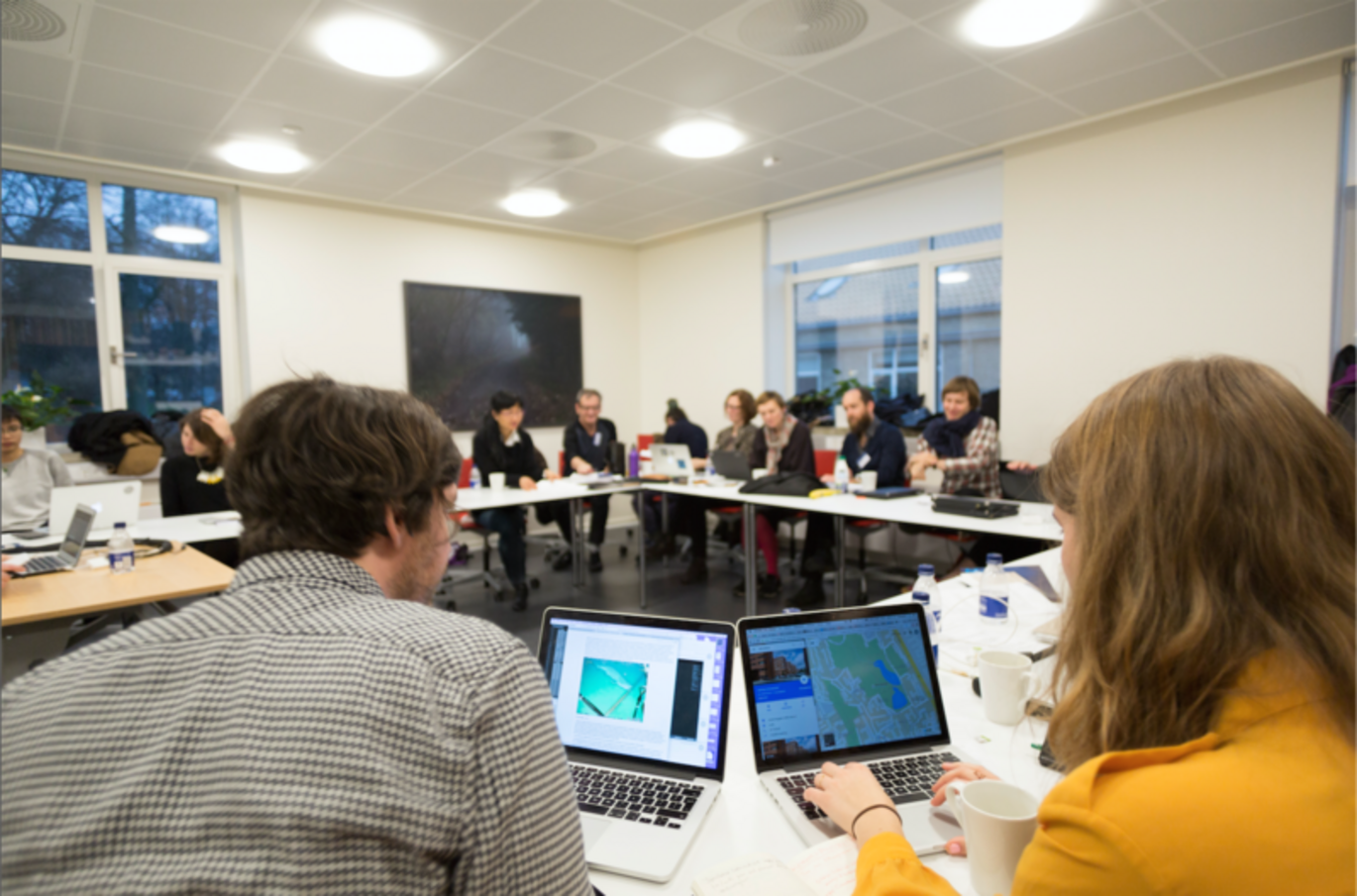Open Forum: Computational Thinking and Programming Practice
Teaching to learn, Learning to Teach Open Forum

Title: Computational Thinking and Programming Practice: Teaching to Learn, Learning to Teach Open Forum
Time: 23 Mar 2018 (Friday), 0900-1500
Venue: Digital Living Research Commons (Wiener 030, Building 5347)
The open forum Learning to Teach, Teaching to Learn is originally initiated and organised by the School of Poetic Computation since 2016 in the United States. The event aims to bring together educators to explore pedagogy, curriculum development, and how to create environments and tools for learning computation and programming. At Aarhus University, programming has been introduced to both Bachelor and Master students in the areas of Digital Design and Information Studies, which is situated in the School of Communication and Culture. This mini open forum, Teaching to Learn and Learning to Teach, explores how computational thinking could be introduced beyond Computer Science and Engineering disciplines, and what are the challenges in teaching programming to arts and humanities? How might programming practice be considered as a mode of aesthetic and critical inquiry? How the production of creative works may help students to understand the essential components of computational thinking?
As part of the Humans and IT research programme, Digital Aesthetics Research Center (DARC) has invited 6 speakers (and two, Prof. Nick Montfort and Anders Visti, are invited from outside AU) to respond to some of the questions above. Each presenter will share their teaching philosophy and challenges for 15 mins and will follow by a discussion. It is more an open forum for sharing and discussing various concerns in relation to computational thinking and programming practice. Anyone is more than welcome to join, especially for those who are interested in computational thinking, digital humanities, creative practices, programming and creative coding, etc.
See more about previous activities on Teaching to Learn and Learning to Teach here.
Schedule breakdown:
-------
0905-0915: Introduction by Winnie Soon
0915-0925: Sharing of his US trip on Teaching to Learn and Learning to Teach by Stig Møller Hansen
0925-0955: Roman Rädle, PostDoc at AU
0955-1025: Thomas Hvid Spangsberg, PhD fellow at AU
BREAK
1045-1115: Stig Møller Hansen, Designer, PhD fellow at AU and Lecturer at the Danish School of Media and Journalism
1115-1145: Nick Montfort, Artist and Professor at MIT
LUNCH
1300-1330: Winnie Soon, Artist and Assistant Professor at AU
1330-1400: Anders Visti, Artist and Founder of !=null and ‡ DobbeltDagge based in Aarhus
1400-1500: NETWORKING
-------
Speakers’ Bio:
Stig Møller Hansen, designer, Ph.D. fellow at AU and Lecturer at the Danish School of Media and Journalism. Bought his first computer in 1989 and quickly developed a passion for mixing art and code. Thirty years later, Stig has made his childhood excitement his professional career, teaching programming for graphic designers. He often shares his thoughts, experiences, and expertise at international conferences, workshops, and courses. In his Ph.D., drawing on his background as a trained graphic designer, Stig examines how introductory programming courses in design schools can be contextualized to improve student engagement and retention
Nick Montfort studies creative computing and develops computational art and poetry. His computer-generated books of poetry include #!, the collaboration 2×6, Autopia, and The Truelist. Among his more than fifty digital projects are The Deletionist and Sea and Spar Between, both collaborations. His MIT Press books, collaborative and individual, are: The New Media Reader, Twisty Little Passages, Racing the Beam, 10 PRINT CHR$(205.5+RND(1)); : GOTO 10, and Exploratory Programming for the Arts and Humanities, and The Future. He is professor of digital media at MIT and lives in New York and Boston.
Roman Rädle is a Postdoctoral Fellow in the Department of Digital Design and Information Studies at Aarhus University in Denmark. He holds a Ph.D. in computer science from the University of Konstanz in Germany.
His research interests include human-computer interaction, ubiquitous computing, and programming education. He recently worked on the use of interactive notebooks in situations where the number of people and devices may vary over time, and how to support fluid transitions between these situations. For example, their use in educational settings where work using notebooks can change from individual work to collaborative group work and vice versa.
Winnie Soon is an artist-researcher-coder-educator who resides in Hong Kong and Denmark. Her works explore themes/concepts around digital culture, including internet censorship, data circulation, image politics, code and real-time processing, etc. Winnie’s projects have been exhibited and presented internationally at museums, festivals, universities and conferences across Europe, Asia and America. Her current research focuses on Computational Thinking, working on a book with Geoff Cox titled “Aesthetic Programming: A Handbook of Software Studies, or Software Studies for Dummies”. She is Assistant Professor at Aarhus University.
Thomas Hvid Spangsberg is a PhD- Fellow in the Department of Digital Design and Information Studies at Aarhus University. He is currently writing his dissertation which is due at the end of August this year. Thomas’ doctoral studies is about how to teach programming and computational thinking to non-STEM students. The main contribution is about a teaching methodology for introductory programming, which is based on natural language teaching and peer instruction. Thomas has taught introductory programming, interaction design and system development at Aarhus University since the spring of 2013 – right after earning his MSC in Digital Design.
Anders Visti is a visual artist working with code. Founder and co-editor of the publishing house * [asterisk] from 2002-12. Founder and editor of the printed web publication ‡ DobbeltDagger and initiator of !=null, a public forum for artists, researchers, developers and hackers using contemporary technology for creative expression and aesthetic inquiry. Currently he is teaching basic coding skills and foundational computing at Funen Art Academy and Jutland Art Academy in Denmark.
Organised by Winnie Soon, Digital Aesthetics Research Center
Hosted by Digital Living Research Commons
